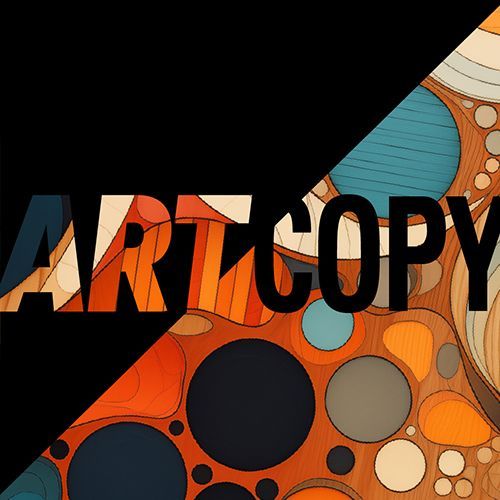Three Paths to Define Your Brand Story: DIY, Private Workshops, Brand Agency
Discover the strengths and weaknesses of three of the most common approaches to developing your brand story.
For tech companies, having a compelling brand narrative is not just a nice-to-have; it’s a necessity. A well-crafted story helps your brand stand out in crowded markets, build emotional connections with ideal customers, and articulate your value in a way that resonates with your audience. But defining that story is easier said than done. Complex products, harder-to-reach audiences, and highly competitive landscapes make the process uniquely challenging.
So, how should you go about creating your brand story? We’ll compare three popular approaches: doing it yourself, leveraging a workshop like StoryBrand, and partnering with a specialized agency like ours. Each has its strengths and challenges, and the right choice depends on your company’s goals and circumstances.
Option 1: Do It Yourself (DIY)
When budgets are tight, or internal teams want ownership over the brand narrative, many companies opt to craft their story in-house. This approach can seem appealing — it’s the cheapest option and allows your team, with its deep understanding of the product, to shape the message.
Strengths:
- Inexpensive compared to external options.
- Empowers internal teams to take control of the messaging.
Challenges:
- Lack of Objectivity: Internal teams are often too close to the product or service, making it difficult to view the brand from the audience’s perspective.
- Skill Gaps: Crafting a truly emotive and differentiated story requires storytelling expertise that many technical teams lack.
- Risk of Falling Flat: The result is often a story that is overly technical or fails to connect with audiences on an emotional level.
Takeaway: While DIY can work for companies with strong storytelling expertise and simple narratives, it’s a risky path for tech brands that need to differentiate in complex markets.
Option 2: Workshops (e.g., StoryBrand)
Workshops like StoryBrand provide a structured framework for creating a brand story. They’re popular for their clear processes and ability to involve multiple team members in storytelling. Workshops typically take 1-2 days and can cost up to $10,000 based on the experience of the facilitator.
Strengths:
- Provides a step-by-step methodology for crafting a narrative.
- Ideal for smaller companies or straightforward products.
- Engaging and collaborative, often energizing internal teams.
Challenges:
- Limited Scope: Many frameworks are designed for simpler business models, which can make them ill-suited for technology companies with complex products.
- Audience Disconnect: Tech brands often target niche or hard-to-reach audiences, requiring more nuanced messaging.
- Market Effectiveness: Without tailored insights or deep industry expertise, the messaging may lack the resonance needed for market impact.
- Reliance Upon Workshop Leader: The success of the workshop approach hinges on the quality of the leader — and workshop leaders may come from a variety of backgrounds that may or may not include messaging for tech.
- Group Think: Sole reliance upon a workshop setting frequently results in group think that suppresses dissenting opinions or favoritism toward the loudest (or most senior) voices in the room.
Case in Point: One Eco-Tech client Speak! worked with initially went through a brand workshop and enjoyed the collaborative process. However, when they tested the messaging in the market, it didn’t land. They realized they needed external expertise to craft a story that would truly connect with their audience and differentiate their brand.
Takeaway: Workshops are a great starting point for small businesses or brands with simpler offerings but often fall short for the complexity of tech firms. Be wary of facilitators who are great at engaging your internal team in the methodology but who lack the actual brand strategy chops to get your effort across the finish line.
Option 3: Partnering with a Brand Agency
When the stakes are high, and the story needs to be just right, partnering with a specialized agency can be the most effective option. As an alternative to StoryBrand and similar workshop-in-a-box approaches, agencies bring the objectivity, expertise, and industry knowledge needed to navigate the challenges of tech storytelling.
Why Choose a Brand Agency?
- Experience Matters: With 17 years of helping tech companies tell their stories, Speak! understands the unique challenges of messaging for tech.
- Proven Methodology: We’ve honed a process for uncovering brand truths and building narratives that resonate.
- Senior Expertise: Every project is led by senior leaders, ensuring that your story is in the hands of seasoned professionals.
What You Gain:
- Fresh Perspective: Agencies offer the outside expertise that internal teams often lack, helping to craft messaging that connects on both rational and emotional levels.
- Tailored Solutions: Unlike workshops, agencies create custom strategies designed specifically for your company’s needs, audience, and market dynamics.
- Everyone's Voice Heard: Brand strategy engagements with an agency almost always feature candid 1:1 conversations with executives, sales leaders, customer experience reps, marketers, HR and more. Tough questions are asked. Honest are answers given. Insights are juicier.
Case in Point: Revisiting the Eco-Tech client, they turned to us after their workshop experience fell short. We were able to distill some of the insights gained through their workshop. After they brought in our experts, we helped them uncover a brand story that was not only true to their identity but also resonated with their market.
Takeaway: For tech companies seeking differentiated, market-ready narratives, working with an agency offers the best balance of expertise, creativity, and strategic alignment.
Choosing the Right Path
Every tech company’s journey is unique. While DIY and workshops might suit some situations, the complexities of tech branding often call for a deeper level of expertise and a tailored approach.
Speak! is a brand agency for technology companies. We specialize in helping tech companies uncover their brand truths and craft stories that connect and inspire. With nearly two decades of experience and a proven track record, we’re here to help you tell your story in a way that stands out.
Ready to get started? Need help translating brand workshop findings into messaging that actually resonates? Let’s talk about how we can bring your brand story to life.




